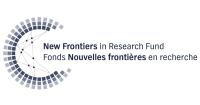Cancer remains one of the leading causes of mortality and morbidity worldwide, despite the growing number of therapeutic regimens. Radiopharmaceutical therapy (RPT) has emerged as an attractive treatment modality for disseminated disease. By matching a pharmacophore with the appropriate radionuclide, ionizing radiation can be delivered to cancer cells for tumoricidal effects. This approach has the advantages of being targeted, predictable, and well-tolerated. RPT is paired with a companion diagnostic that is used for patient stratification and treatment monitoring. This theranostic (Therapeutic + Diagnostic) approach has been applied successfully to thyroid cancer, neuroblastoma, pheochromocytoma, neuroendocrine tumors, and prostate cancer. There is a need to develop new theranostic agents to treat neoplastic diseases for which treatment options are limited.
Our research group is interested in biomarker discovery and validation, drug discovery, bioengineering, radiopharmaceutical development, and clinical translation. Working with molecular biologists, radiochemists, medical physicists, nuclear technologists, and clinician scientists, we evaluate different combinations of radioisotopes (e.g., PET, SPECT, auger, beta, and alpha) and targeting vectors (e.g., antibodies, antibody mimetics, peptides, and small molecules) to better visualize and/or treat cancers.


